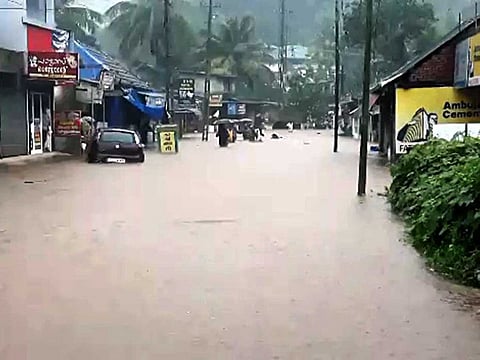Freak weather conditions a wake-up call
Recent floods in India and elsewhere point to need for urgent action on climate change

At least 35 people have died in massive landslides and floods triggered by heavy rains in Kerala, South India, as rescuers struggle to find survivors in muddy waters. The administration has now pressed in the navy and directed the Indian military to fly in emergency supplies as rivers swell and roads and other vital infrastructure are flooded.
Though an estimate of the economic impact of these floods has not yet been made, these abnormal weather occurrences have dealt a big blow to the infrastructure and livelihoods of people.
Experts are putting it down to the impact of climate crisis on India’s increasingly vulnerable ecology. Kerala’s topography, combined with extreme rainfall events in a short period — something very unusual — makes for a perfect recipe for disaster. It is a wake-up call for both — the people living in these areas and the government, to regulate habitats in these ecologically sensitive zones.
Extreme weather patterns
Similar events have occurred in the last two days in the northern Indian states of Himachal Pradesh and Uttarakhand. Over the years, there has been widespread construction in these places with little concern for conservation of nature. As the present extreme weather patterns show, the fragility of ecosystem can result in massive damage to natural ecosystems besides causing huge economic losses.
Meanwhile, the freak weather conditions in these Indian states cannot be seen as isolated cases. Similar weather occurrences have taken place in recent months in other parts of the world, particularly in Europe, China and the US. These unseasonal torrential deluges call for a sober yet an urgent action to address the damage to the global climate.
Global warming
Scientists have been warning of the devastating impact of the rising temperatures. In a few years, a recent United Nations report said the global warming may get out of hand. As it stands, the rising temperature and carbon emissions are quite challenging to any proposed remedy but the good news is that it is not too late to save the planet.
At the end of this month, hundreds of delegates, including dozens of world leaders will meet in Glasgow, Scotland for COP26, the latest high-profile conference to agree on binding commitments by the world’s major economies to reduce the rising temperatures below the 1.5 degrees Celsius agreed in Paris in 2015.
Certainly, some gaps must be bridged among where the rich and the poor stand on this issue. On the other hand, there fortunately is a growing consensus that Glasgow must succeed as it likely represents a last credible chance to join hands to save the planet.







